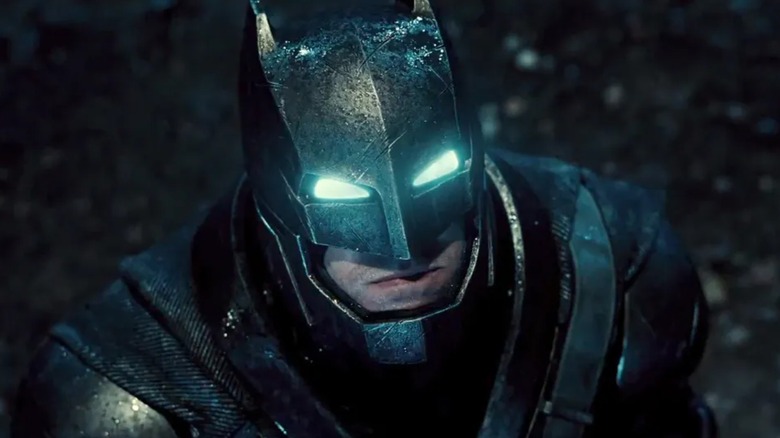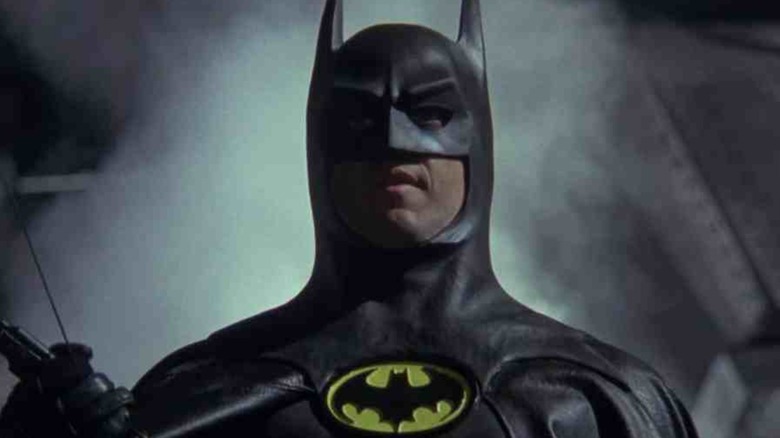Why Zack Snyder Ignored Batman's No-Kill Rule In His DC Movies
Batman (Ben Affleck) enters the DC Extended Universe in the franchise's second feature, the nearly R-rated "Batman v. Superman: Dawn of Justice." While he looks like his comic counterpart and has gone through many of the same narrative beats, this take on the Dark Knight is rather different. He's ruthless, branding criminals with his bat emblem and even going as far as killing his enemies — a major no-no for the character according to many fans. This element of Affleck's Batman has become a point of contention, but director Zack Snyder stands by his decision to do away with the no-kill rule.
During an appearance on "The Joe Rogan Experience," Snyder explained that in his eyes, deconstructing the Batman character and testing his morality is ultimately necessary for him and fans alike. He said, "You're making your god irrelevant if he can't be in that situation. He has to now deal with that. If he does do that what does that mean? What does it tell you, does he stand up to it? Does he survive that as a god?" In Snyder's mind, taking Batman in an unconventional direction by rejecting his no-kill rule forces fans to look at him and his methodology as a crime fighter from a different perspective. He feels this is essential for the character to grow and evolve.
Regardless of where one stands on the Batman not killing debate, the fact is that Snyder isn't the only director who has allowed the Caped Crusader to take lives during battle.
Most live-action Batmen have killed
While Zack Snyder's Batman has caught plenty of flak for openly and intentionally killing people on the big screen, it's worth remembering that many other cinematic takes on the character have blood on their hands as well. First and foremost is Michael Keaton's beloved rendition, who in both "Batman" and "Batman Returns" takes human lives. From sending the Joker (Jack Nicholson, who made a fortune off the role) falling to his death to blowing up a goon with dynamite, Keaton's Batman takes no prisoners. His successor, Val Kilmer, is no saint either.
Yes, in "Batman Forever," Batman very much instigates the death of Two-Face (Tommy Lee Jones). During their final confrontation, he tosses a handful of coins into the air, prompting the former Harvey Dent to reach out and try to grab them before taking a fatal fall. Christian Bale's Batman is also in the same league as Keaton and Kilmer, taking a handful of lives throughout the story of the Dark Knight trilogy. He too fatally sends Two-Face (Aaron Eckhart) careening toward the solid ground and is involved in the death of Ra's al Ghul (Liam Neeson) and several members of the League of Shadows.
It's true that in print, Batman does his best to adhere to the rule of no killing. However, in Hollywood, statistically speaking, any of his villains and their henchmen who leave a confrontation with him alive are lucky.

